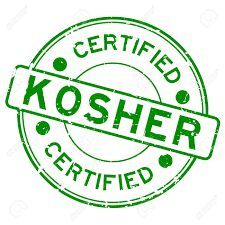
Kosher Certificate Services
A kosher certification agency is an organization or certifying authority that grants a hechsher to ingredients, packaged foods, beverages, and certain materials, as well as food-service providers and facilities in which kosher food is prepared or served.
Packaging Type : envelope
Packaging Size : 1 unit
Usage : Animal Feed, Cattle Feed, Pig, Sheep, Goat, Poultry Farm
Shelf Life : 1 Year
Color : any
Form : paper
Country of Origin : both
...more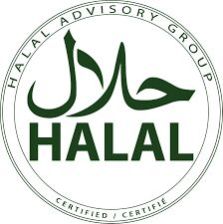
halal certification
Halal literally means "permissible" in Arabic and refers to food items that are permissible to consume under Sharia law, whereas haram refers to any substance not permitted to consume Halal Certificate assures that the products are thoroughly checked in accordance to the Islamic Shariah Laws by the concerned board. As Halal consumers/buyers accept and buy only the products certified with Halal seal, it is necessary to obtain this certain before you sell or export your products to the Halal buyers.
...more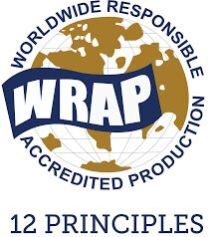
WRAP Service
Worldwide Responsible Accredited Production, formerly Worldwide Responsible Apparel Production, is a not-for-profit 501 organization dedicated to promoting safe, lawful, humane and ethical manufacturing around the world through certification and education
...more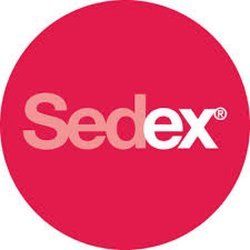
SEDEX Service
We developed Sedex Advance to be open to external applications, so we can offer you the Sedex API Service. The service allows external applications to access a large portion of the data within Sedex Advance.
...more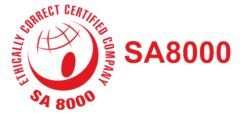
SA8000 Certification Consultancy
SA8000 is a global social accountability standard for decent working conditions, developed and overseen by Social Accountability International (SAI). Rising public concern about inhumane working conditions in developing countries led to the creation in 1997 of the Council on Economic Priorities Accreditation Agency. Its purpose was to draw up a universal code of practice for labor conditions in manufacturing industry, so that consumers in developed countries could be confident that the goods they were buying - in particular clothes, toys, cosmetics and electronic goods - had been produced in accordance with recognized set of standards. Having demonstrated compliance with existing regulations and assessed how current practice compares with the provisions of SA8000, the company is given the status of 'SA8000 applicant'. The business then implements an SA8000 programme, which is scrutinized by a 'pre-assessment audit'. Any improvements that are recommended should be implemented before the formal audit takes place. After the formal assessment, the company is again given the opportunity to rectify any shortcomings, before being assessed again. If at the end of this process the auditors are satisfied that the company is fully compliant, they will recommend an SA8000 certificate, valid for three years. Benefits of SA8000 Initial evidence indicates that SA8000 certified facilities enjoy a competitive advantage and workers experience concrete benefits as the SA8000 management system and any needed corrective actions are put in place. Benefits for Workers, Trade Unions and NGOs: Enhanced opportunities to organize trade unions and bargain collectively. A tool to educate workers about core labor rights. An opportunity to work directly with business on labor rights issues. A way to generate public awareness of companies committed to assuring humane working conditions. Benefits for Business: Drives company values into action. Enhances company and brand reputation Improves employee recruitment, retention and productivity. Supports better supply chain management and performance. Benefits for Consumers and Investors: Clear and credible assurance for ethical purchasing decisions. Identification of ethically made products and companies committed to ethical sourcing. Broad coverage of product categories and production geography. SA-8000 Elements Child Labor: No workers under the age of 15; minimum lowered to 14 for countries operating under the ILO Convention 138 developing-country exception; remediation of any child found to be working Forced Labor: No forced labor, including prison or debt bondage labor; no lodging of deposits or identity papers by employers or outside recruiters Health and Safety: Provide a safe and healthy work environment; take steps to prevent injuries; regular health and safety worker training; system to detect threats to health and safety; access to bathrooms and potable water Freedom of Association and Right to Collective Bargaining: Respect the right to form and join trade unions and bargain collectively; where law prohibits these freedoms, facilitate parallel means of association and bargaining Discrimination: No discrimination based on race, caste, origin, religion, disability, gender, sexual orientation, union or political affiliation, or age; no sexual harassment. Discipline: No corporal punishment, mental or physical coercion or verbal abuse. Working Hours: Comply with the applicable law but, in any event, no more than 48 hours per week with at least one day off for every seven day period; voluntary overtime paid at a premium rate and not to exceed 12 hours per week on a regular basis; overtime may be mandatory if part of a collective bargaining agreement. Compensation: Wages paid for a standard work week must meet the legal and industry standards and be sufficient to meet the basic need of workers and their families; no disciplinary deductions Management Systems: Facilities seeking to gain and maintain certification must go beyond simple compliance to integrate the standard into their management systems and practices. All the legal compliances should be fulfilled.
...more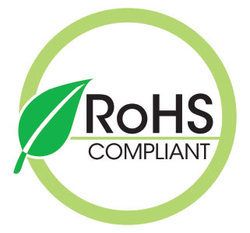
ROHS Certification Service
The Restriction of Hazardous Substances Directive 2002/95/EC, RoHS, short for Directive on the restriction of the use of certain hazardous substances in electrical and electronic equipment, was adopted in February 2003 by the European Union. Each European Union member state will adopt its own enforcement and implementation policies using the directive as a guide. RoHS is often referred to (inaccurately) as the 'lead-free directive', but it restricts the use of the following six substances: Lead (Pb) Mercury (Hg) Cadmium (Cd) Hexavalent chromium (Cr6+) Polybrominated biphenyls (PBB) Polybrominated diphenyl ether (PBDE) PBB and PBDE are flame retardants used in several plastics. Hexavalent chromium is used in chrome plating, chromate coatings and primers, and in chromic acid. The directive applies to equipment as defined by a section of the WEEE directive. The following numeric categories apply: Large household appliances. Small household appliances. IT & Telecommunications equipment (although infrastructure equipment is exempt in some countries) Consumer equipment. Lighting equipment—including light bulbs. Electronic and electrical tools. Toys, leisure, and sports equipment. Medical devices (exemption removed in July 2011) Monitoring and control instruments (exemption removed in July 2011) Automatic dispensers. Semiconductor devices It does not apply to fixed industrial plant and tools. Compliance is the responsibility of the company that puts the product on the market, as defined in the Directive; components and sub-assemblies are not responsible for product compliance. Of course, given the fact that the regulation is applied at the homogeneous material level, data on substance concentrations needs to be transferred through the supply chain to the final producer. Examples of product components containing restricted substances RoHS restricted substances have been used in a broad array of consumer electronics products. Examples of leaded components include: Paints and pigments PVC (vinyl) cables as a stabilizer (e.g., power cords, USB cables) Solders Printed circuit board finishes, leads, internal and external interconnects Glass in television and photographic products (e.g., CRT television screens and camera lenses) Metal parts Lamps and bulbs Batteries Benefits RoHS helps reduce damage to people and the environment in third-world countries where much of today's "high-tech trash" ends up. The use of lead-free solders and components has provided immediate health benefits to electronics industry workers in prototype and manufacturing operations. Contact with solder paste no longer represents the same health hazard as it used to.
...more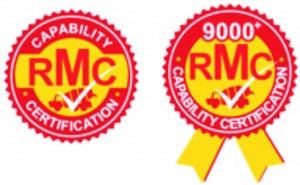
RMC Certification
Quality Council of India (QCI) has taken an initiative to establish an independent third party voluntary “RMC Plant Certification Scheme” in the country to assure quality in operations and processes of RMC Plants. This scheme was developed with the active participation and technical support from Ready Mixed Concrete Manufacturers’ Association (RMCMA), a Mumbai based non-profit industry organization of leading Ready Mix Concrete (RMC) producers in India; Building Materials & Technology Promotion Council (BMTPC) under Ministry of Housing & Urban Poverty Alleviation, Government of India and various other stakeholders.
...more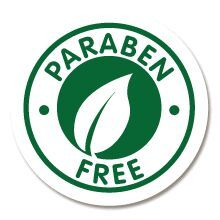
Paraben Free Certification Service
Whether perusing the beauty and personal care products at Target or Whole Foods or shopping online at Sephora, consumers are increasingly encountering the phrase "paraben-free."What exactly does paraben-free mean, and why might it matter? We take a closer look - including sussing out pretty makeup products that are paraben-free.What are parabens?Parabens are the most widely used preservatives in cosmetics and personal care products such as soap, moisturizers, shaving cream and underarm deodorant, according to the Food and Drug Administration. To get a bit science-y, parabens are esters (a compound formed from acid and alcohol) of p-hydroxybenzoic acid. The FDA says the most common are methylparaben, propylparaben and butylparaben.Companies use parabens to extend the shelf life of products and prevent growth of bacteria and fungi in, for instance, face cream. And that's good, right? Mold is essential to blue cheese, but who wants to smear her face with it?
...more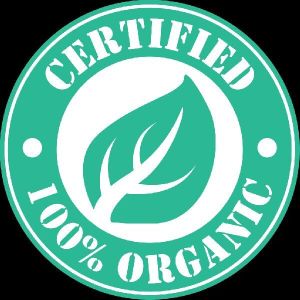
Organic Certificate
Organic certification is a certification process for producers of organic food and other organic agricultural products. In general, any business directly involved in food production can be certified, including seed suppliers, farmers, food processors, retailers and restaurants.
...more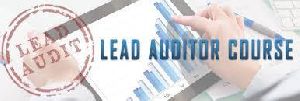
Lead Auditor Training
Who is a lead auditor? The individual responsible for leading the audit team. The lead auditor prepares the audit plan, conducts the meetings, and submits the formal audit report. Why should we go for this training? To get the grip on the standards & to understand the standards requirement, & do the audit as per the requirement. To develop the Skills required for Lead auditor, to give value addition during the audit. Benefit of this program. Lead Auditor training of the required standard provides a comprehensive and practical understanding of: ISO 9001 Quality Management Systems – Requirements ISO 14001 Environmental Management Systems – Requirements ISO 45001 – Requirements ISO 27001:2013- Requirements
...more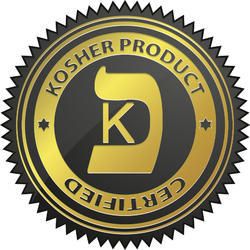
Kosher Certification Service
It is NOT the Rabbi blessing the food, Health food, Organic or any other popular misconception! It is interesting, that statistics show that the majority of kosher consumers are not Jewish! As a matter of fact not even any religious group at all! The majority of kosher consumers are regular, ordinary people that perceive kosher to be “cleaner”, “better” & “healthier”! Which certainly may be the case, but isn’t what kosher means! When your product or establishment is certified kosher, shoppers know that you comply with a strict policy of kosher food laws, including cleanliness, purity and quality. But kosher means more than responsible food preparation. Kosher refers to a set of intricate biblical laws that detail the types of food that a Jewish person may eat and the ways in which it may be prepared. To be certified Kosher, all ingredients in every product—and the process of preparing the product—must be certified for kosher-compliance too. Benefits of Obtaining Kosher Certification The Kosher Organics symbol generates additional revenues by expanding the size of the market for your natural and organic products. Going kosher is an investment your company makes in order to increase market reach and share. Kosher certified foods and products are now in the nation's 30,000 supermarkets, including big national chains. There is clear evidence that a kosher symbol boosts market share, that a kosher product can win more favourable shelf space, and that a kosher certified product positioned next to a competing non kosher product will do better In order to meet this demand companies throughout the world are seeking kosher certification in order to expand their existing market.
...more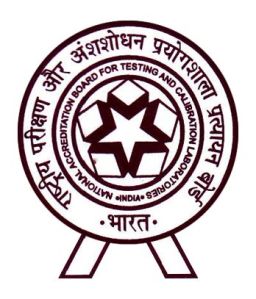
ISO/IEC 17025:2017 NABL Certification Consultancy
ISO/IEC 17025 requires General requirements for the competence of testing and calibration laboratories are the main ISO/CASCO standard used by testing and calibration laboratories. Originally known as ISO/IEC Guide 25, ISO/IEC 17025 was initially issued by the International Organization for Standardization in 1999. There are many commonalities with the ISO 9000 standard, but ISO/IEC 17025 is more specific in requirements for competence. And it applies directly to those organizations that produce testing and calibration results. Since its initial release, a second release was made in 2005 after it was agreed that it needed to have its quality system words more closely aligned with the 2000 version of ISO 9001. The ISO/IEC 17025 standard itself comprises five elements that are Scope, Normative References, Terms and Definitions, Management Requirements and Technical Requirements. The two main sections in ISO/IEC 17025 are Management Requirements and Technical Requirements. Management requirements are primarily related to the operation and effectiveness of the quality management system within the laboratory. Technical requirements include factors which determine the correctness and reliability of the tests and calibrations performed in laboratory. Laboratories use ISO/IEC 17025 to implement a quality system aimed at improving their ability to consistently produce valid results. It is also the basis for accreditation from an accreditation body. Since the standard is about competence, accreditation is simply formal recognition of a demonstration of that competence. A prerequisite for a laboratory to become accredited is to have a documented quality management system. The usual contents of the quality manual follow the outline of the ISO/IEC 17025 standard. Why to go for ISO 17025? Accreditation to the ISO17025 provides both laboratory and business benefits such as: Improving the image of the laboratory. The data quality and effectiveness is continually improved. Provides a fundamental for other quality systems related to laboratories such as GMP (Good Manufacturing Practices and GLP (Good Laboratory Practices). It is the recognition of testing competence. It is an effective marketing tool to submit tenders for testing and/or calibration. It protects the laboratory’s data integrity in case of legal implications. It enables the assessment of relative quality and capability of other accredited laboratories.
...more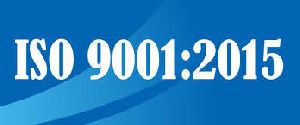
ISO 9001:2015 QMS Certification Consultancy
ISO 9001:2015 is the standard that provides a set of standardized requirements for a quality management system, regardless of what the user organization does, its size, or whether it is in the private, or public sector. It is the only standard in the family against which organizations can be certified – although the certification is not a compulsory requirement of the standard. ISO 9001 is the internationally recognized standard for the quality management of businesses. It applies to the processes that create and control the products and services an organisation supplies. It prescribes systematic control of activities to ensure that the needs and expectations of customers are met. It is designed and intended to apply to virtually any product or service, made by any process anywhere in the world. The Benefits of implementing ISO 9001:2015 (QMS) Achieve Company policy and goals Win Customer Confidence Increase Customer Satisfaction Continually improve overall performance Proactive and systematic adjustment to changing market conditions Employee Satisfaction Performance enhancement Transparency and effectiveness of internal company processes Error avoidance instead of error correction Time and cost savings Why seek certification to ISO 9001? It assures customers that the company has a good quality management system. Many Organisation requires their suppliers to have ISO 9001 Certification. It shows committed to quality, customers, and a willingness to work towards improving efficiency. It leads companies to better operations, improved performance and improved profitability. An ISO 9001 certificate enhances company image in the eyes of customers, employees and shareholders alike. It also gives a competitive edge to an organisation's marketing. How do you start to implement ISO 9001? What is involved? Identify the requirements of ISO 9001 and how they apply to the business involved. Establish quality objectives and how they fit in to the operation of the business. Produce a documented quality policy indicating how these requirements are satisfied. Communicate them throughout the organisation. Evaluate the quality policy, its stated objectives and then prioritise requirements to ensure they are met. Identify the boundaries of the management system and produce documented procedures as required. Ensure these procedures are suitable and adhered to. Once developed, internal audits are needed to ensure the system carries on working. Assessment to ISO 9001 Once all the requirements of ISO 9001 have been met, it is time for an external audit. This should be carried out by a third party, accredited certification body. The chosen certification body will review the quality manuals and procedures. This process involves looking at the company’s evaluation of quality and ascertains if targets set for the management program are measurable and achievable. This is followed at a later date by a full on-site audit to ensure that working practices observe the procedures and stated objectives and that appropriate records are kept. After a successful audit, a certificate of registration to ISO 9001 will be issued. There will then be surveillance visits (usually once or twice a year) to ensure that the system continues to work.
...more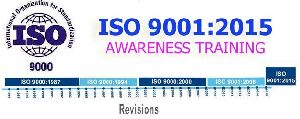
ISO 9001:2015 Awareness Training
ISO 9001:2015 Awareness Training Awareness, Documentation & Auditors Training seminars are designed to provide a basic understanding of Quality Management System (QMS) based on ISO 9001 Standard, its benefits, documentation requirements & auditing methods, skills which can be obtained by beginning the journey to ISO 9001:2015 QMS certification. Benefits of Awareness training: Applicability to all product categories, in all sector and all sizes of organizations. Simple to use, clear to understand, readily translatable Significant reduction in the amount of required documentation Connection of Quality management system to organizational processes Provision of Natural move towards improved organizational performance Greater orientation towards continual improvement and customer satisfaction Compatibility with other management systems such as ISO-14001 Provision of a consistent basis to address the needs and interests of organizations in specific sectors (medical devices, telecommunications, automotive etc.) The concept of the consistent pair ISO-9001 covering the requirement and ISO-9004 for going beyond the requirements in order to further improve the performance of the organization. Consideration of the needs of and benefits to all interested parties
...more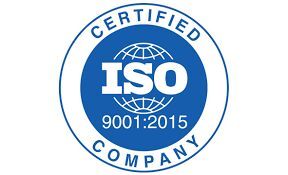
ISO 9001:2015
1 1 (MOQ)
ISO 9001:2015 specifies requirements for a quality management system when an organization: a) needs to demonstrate its ability to consistently provide products and services that meet customer and applicable statutory and regulatory requirements
...more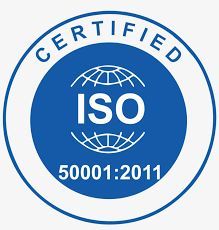
ISO 50001:2018 Energy Management System
ISO 50001 is an energy management systems standard. It enhances discipline of energy management. Energy management systems are abbreviated as EnMS.The purpose of this International Standard is to enable organizations to establish the systems and processes necessary to improve energy performance, including energy efficiency, use, and consumption. Implementation of this International Standard is intended to lead to reductions in greenhouse gas emissions and other related environmental impacts and energy cost through systematic management of energy. This International Standard is applicable to all types and sizes of organizations, irrespective of geographical, cultural or social conditions. Successful implementation depends on commitment from all levels and functions of the organization, especially from top management
...more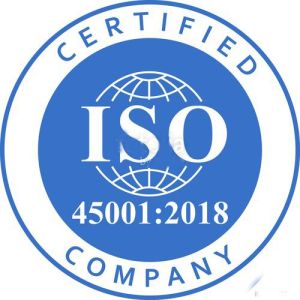
ISO 45001:2018 Certification Consultancy
ISO 45001 is a comprehensive Occupational Health and Safety Management System specification, designed to enable organizations to control Health & Safety risks and improve its performance. The standard is applicable to any organization that wishes to take a proactive approach to its occupational health and safety risks. The Benefits of implementing OH&S Management? Reducing the number of personnel injuries through prevention and control of workplace hazards. Reducing the risk of major accidents. Ensuring a well-qualified and enthusiastic workforce by fulfillment of the increasing expectations of your employees. Reducing the material loss caused by accidents and in production interruptions. Reducing insurance costs as well as reducing costs due to absence of employees. Serving the possibility for an integrated management system including quality, environment and health and safety. Ensuring that appropriate legislation is addressed and acted upon. Meeting the increasing importance of OH&S for public image. In what ways implementations of OHSAS Management system help me? Demonstrate legal compliance and reduce the risk of potential litigation. Reduce accidents & downtime. Give access to new customers and partners who require suppliers to meet tender relevant criteria. ISO 45001 has been developed to be compatible with ISO 9001 and ISO 14001 to allow for easy integration. Legislative & regulatory commitment and continual improvement are two important aspects of ISO 45001. The elements of OHSAS Management system include: Policy and commitment. Hazard identification, risk assessment & risk controls. Legal requirements. Objectives & Programs. Organization & personnel. Training, Communication & Consultation. Documentation & records. Operational Controls. Emergency Readiness. What is the cost of implementing OHSAS? The cost of the implementing is as per the actual process and product requirement of the legal (national & international), Health & Safety Requirement.
...more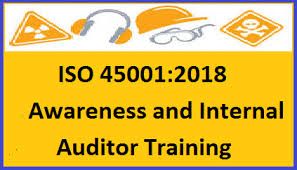
ISO 45001:2018 Awareness Training
Health and Safety at work is an issue affecting all businesses, and implementing an Occupational Health and Safety (OHS) Management System is now a legal requirement. In addition, companies are increasingly required to report on their health and safety performance. This makes it vital to demonstrate that your organisation delivers on its policy commitments. This ISO 45001 Awareness Training provides a subject for all levels of staff, and demonstrates a commitment to gain knowledge and meet legislative and Certification Body requirements. Benefits of ISO 45001;2018 Awareness Training : Increase in employee motivation through improved safety at work and health care Consistent reduction in costs caused by accidents and production stoppages Expression of commitment to the protection of employees, property and production equipment Improvement of corporate image, competitive situation and customer loyalty Control of critical areas by strengthening internal and external communication Enhancing the legal certainty of upper management Consistent adherence to legal requirements
...more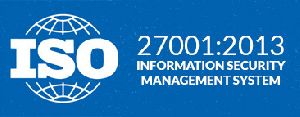
ISO 27001:2013 ISMS Certification Consultancy
SO/IEC 27001:2013 covers all types of organizations (e.g. commercial enterprises, government agencies, not-for profit organizations). ISO/IEC 27001:2013 specifies the requirements for establishing, implementing, operating, monitoring, reviewing, maintaining and improving a documented Information Security Management System within the context of the organization's overall business risks. It specifies requirements for the implementation of security controls customized to the needs of individual organizations or parts thereof. ISO/IEC 27001:2013 is designed to ensure the selection of adequate and proportionate security controls that protect information assets and give confidence to interested parties. ISO/IEC 27001:2013 is intended to be suitable for several different types of use, including the following Use within organizations to formulate security requirements and objectives; Use within organizations as a way to ensure that security risks are cost effectively managed; Use within organizations to ensure compliance with laws and regulations; Use within an organization as a process framework for the implementation and management of controls to ensure that the specific security objectives of an organization are met; Definition of new information security management processes; Identification and clarification of existing information security management processes; Use by the management of organizations to determine the status of information security management activities; Use by the internal and external auditors of organizations to determine the degree of compliance with the policies, directives and standards adopted by an organization; Use by organizations to provide relevant information about information security policies, directives, standards and procedures to trading partners and other organizations with whom they interact for operational or commercial reasons; Implementation of business-enabling information security; Use by organizations to provide relevant information about information security to customers. The process starts when the organization makes the decision to embark upon the exercise. Clearly, at this point, it is also important to ensure management commitment and then assign responsibilities for the project itself. An organizational top level policy can then be developed and published. This can, and will normally, be supported by subordinate policies. The next stage is particularly critical: scoping. This will define which part(s) of the organization will be covered by the ISMS. Typically, it will define the location, assets and technology to be included. At this stage a risk assessment will be undertaken, to determine the organization's risk exposure/profile, and identify the best route to address this. The document produced will be the basis for the next stage, which will be the management of those risks. A part of this process will be selection of appropriate controls with respect to those outlined in the standard (and ISO27002), with the justification for each decision recorded in a Statement of Applicability (SOA). The controls themselves should then be implemented as appropriate. The certification process itself can then be embarked upon via a suitable accredited third party
...more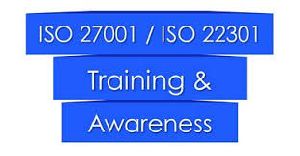
ISO 27001:2013 Awareness Training
We have all sorts of software’s but without control. ISO 27000 will educate you for the control measures to be applied in the organisation. An ISMS compliant with these requirements allows organizations to examine and control information security risks, threats and vulnerabilities. Benefits of ISO 27001:2013 Awareness Training: Understanding of business information processes. Better able to reassure customers and internal parties. Staff will be aware of their roles and responsibilities in looking after their own information security. Better awareness and understanding of applicability of the risk.
...more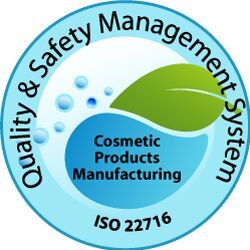
ISO 22716:2007 GMP for Cosmetics Certification Consultancy
Demonstrate your commitment to safety Business Challenge ISO 22716:2007 gives guidelines for the production, control, storage and shipment of cosmetic products. These guidelines cover the quality aspects of the product, but as a whole do not cover safety aspects for the personnel engaged in the plant, nor do they cover aspects of protection of the environment. The guidelines in ISO 22716:2007 are not applicable to research and development activities and distribution of finished products. Cosmetics Good Manufacturing Practices (GMP) is one of the pillars of the New European Regulation for Cosmetics. This regulation sets very high requirements to ensure consumers’ safety. Amongst these new legal requirements, all cosmetics products circulating onto the European Market will have to be produced according to the Cosmetics Good Manufacturing Practices described by the ISO 22716 standard. All participants in the cosmetics products chain, European and non-European, are concerned. Ingredients producers, products final assembler, distributors and importers/exporters, all actors are involved and new responsibilities have been defined. Solutions What are the Cosmetics Good Manufacturing Practices and ISO 22716 certification? Cosmetics Good Manufacturing Practices are a set of hands-on advice, operational rules and organizational guidelines especially focused on human, technical and administrative factors affecting product quality. The objective of the GMP is to define the activities which lead to the final product corresponding to the expected specifications, and therefore product safety. ISO 22716 is the standard describing the Cosmetics Good Manufacturing Practices. It has been written in collaboration with cosmetics industry professionals and promotes best-in-class methods. The scope of ISO 22716 is not only limited to production activities but also includes control, storage and expedition. Why implement Cosmetics Good Manufacturing Practices, now? Validate the conformity of your Management System with the new legal requirements Prepare and facilitate legal inspections by Health Authorities Demonstrate to your stakeholders (retailers, product traders, importers…) that your processes and facilities are in conformity with GMP Inspire consumers’ confidence Ensure access to your markets (in Europe and Worldwide) Enhance operating efficiency and competitive market appeal Cosmetics Expertise and Recognition - has a large range of International references in the field of Cosmetics. Network - A global presence in more than 100 countries means clients benefit from both international expertise and in-depth knowledge of local standards and regulations. Mark of global recognition - Mark is a globally recognized symbol of your organization's ongoing commitment to excellence, sustainability and reliability.
...more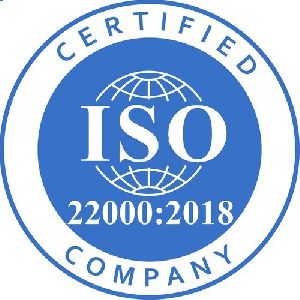
ISO 22000:2018 (FSMS) Certification Consultancy
Hazard Analysis and Critical Central Point (HACCP) / ISO 22000 Food Safety Management System is a process control system designed to identify and prevent microbial and other hazards in food production and entire food chain. HACCP includes steps designed to prevent problems before they occur and to correct deviations through a systematic way as soon as they are detected. Such preventive control systems with documentation and verification are widely recognized by scientific authorities and international organizations as the most effective approach available for producing safe food. HACCP / ISO 22000 enables the producers, processors, distributors, exporters, etc, of food products to utilize technical resources efficiently and in a cost effective manner in assuring food safety. The ISO 22000:2005 standard outlines Food Safety Management System Requirements for any organization in the food chain, and is one of a family of standards focused at the development, implementation and improvement of a food safety management system. Who should use ISO 22000:2018? Since ISO 22000 is a generic food safety management standard it can be used by any organization directly or indirectly involved in the food chain including- Farms, Fisheries and Dairies, Processors of Meats, Fish and Feed, including Manufacturers of soups, snacks, bread, cereal, beverages, canned and frozen food, etc as well as food service providers such as restaurants, fast food chains, hospitals and hotels. Supporting services should not be forgotten and providers of food transportation storage and distribution, catering services as well as product suppliers for equipment, additives, raw materials, cleaning and sanitizing products, packaging. In short if your products touch the food industry or the food we eat, part or all of the ISO 22000 requirements will apply.
...more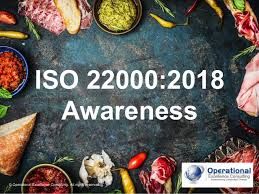
ISO 22000:2018 Food Safety Management System Awareness Training
The essential objective of this course is to create awareness within the organization regarding various basic requirements of the standard & impart working knowledge on how these requirements can be interpreted to suit the organization’s processes, products, people & customers. Benefits of FSMS Awareness training Understand the purpose of FSMS / HACCP Explain the principles of Food Safety Management Apply the requirements of ISO 22000:2018/ HACCP Prepare and advice their organization before third party assessment. Contribute to the development and improvement of their organization’s Food Safety Management System. It essentially covers the basic requirements of ISO 22000:2005 & its interpretation & hence helps in providing a great amount of awareness to the group of people in the organization by way of participating in individual/group exercises as well as experience sharing.
...more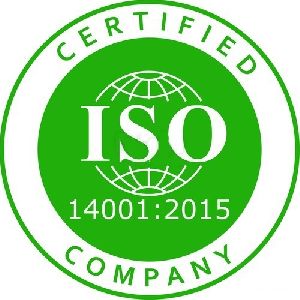
ISO 14001:2015 EMS Certification Consultancy
ISO 14001:2015 specifies requirements for an environmental management system to enable an organization to develop and implement a policy and objectives which take into account legal requirements and other requirements to which the organization subscribes, and information about significant environmental aspects. It applies to those environmental aspects that the organization identifies as those which it can control and those which it can influence. It does not itself state specific environmental performance criteria. The Benefits of implementing ISO 14001:2015 (EMS) Meet legal and corporate policy requirement. Potentially fewer surveillance visits from regulatory agencies. Showing your business partners, agencies, and community that you are environmentally responsible. Increase Competitiveness. Increase profits through potential process improvements. Reducing your environmental liability Complying with environmental laws and regulations. Improving relationships with regulators - organizations that implement an ISO 14001 EMS often report improved relations with government regulatory agencies, find that regulators are quicker to provide technical support, and find that the regulators are much more supportive in general. Capturing institutional knowledge - ISO 14001 ensures this information is properly documented, communicated and retained. The cyclical nature of this management system further ensures all system information is reviewed and updated at least annually. Streamlining operations - organizations often realize monetary savings as a result of greater operational efficiency and energy conservation. Increased awareness and participation - organizations benefit from better communication about environmental issues inside and outside the organization. ISO 14001 gives people an avenue to raise environmental issues and makes it clear that environmental performance is an important part of the corporate culture. Safety benefits – by reviewing the procedures for controlling significant operations, including a review of emergency preparedness and response procedures, organizations are able to identify and implement significant safety improvements. Why seek certification to ISO 14001? It shows that an organisation is committed to environmental issues and is prepared to work towards improving and caring for the environment. An ISO 14001 certificate enhances company image in the eyes of customers, employees and shareholders. It also gives a competitive edge to an organisation's marketing. How do you start to implement ISO 14001? What is involved? Evaluate your environmental effects and prioritize your responses to them. Identify the boundaries of your management system and document your procedures for implementing the requirements of ISO 14001. Ensure these procedures are implemented and then audit them. Once developed, internal audits are needed to ensure the system carries on working. Audit to ISO 14001 Having chosen a third party accredited registrar for your audit, it will review your documentation and carry out an initial audit of your site. This looks at the company’s evaluation of environmental effects and ascertains if targets set for the management programme are measurable and achievable. This is followed at a later date by a full audit to ensure that records and working practices demonstrate that the company is working to its procedures. What is the cost of an audit to ISO 14001? Cost depends on the number of the employees, Scope of certification, Process, factory / office/site actual aspect & impact and other factors related to environment and legal requirements, Number of sites etc…
...more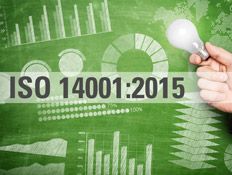
ISO 14001:2015 Awareness Training
EMS helps to achieve the requirements of pollution control board & social responsibility. It helps in giving confidence to corporate clients. It gives confidence to your employees that they are part of well established organisation that takes care of social responsibilities. Benefits of ISO 14001:2015 Awareness Training: Developing skills for becoming a successful Management Representative (M. R.) / ISO Coordinator, To develop skills for becoming a competent member of your company’s core team, which is responsible for developing, implementing, maintaining & improving your company’s Environmental Management System (EMS) based on ISO 14001 Standard, To develop skills for conducting Environmental System Audits on Suppliers (Vendors) on behalf of your company. To develop skills for conducting third party / external audits on behalf of a Certification Body.
...more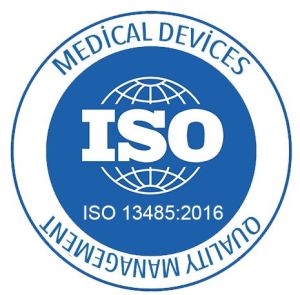
ISO 13485:2016 - MDM Certification Consultancy
ISO 13485 is an International Organization for Standardization (ISO) standard, published in 2003, that represents the requirements for a comprehensive quality management system for the design and manufacture of medical devices. This standard supersedes earlier documents such as EN 46001 and EN 46002 (both 1997), the ISO 13485 published in 1996 and ISO 13488. Though it is tailored to the industry's quality system expectations and regulatory requirements, an organization does not need to be actively manufacturing medical devices or their components to seek certification to this standard, in contrast to the automotive sector's ISO/TS 16949, where only firms with an active request for quotation, or on the bid list, of an International Automotive Task Force supply chain manufacturer can seek registration. While it remains a stand-alone document, ISO 13485 is generally harmonized with ISO 9001. A principal difference, however, is that ISO 9001 requires the organization to demonstrate continual improvement, whereas ISO 13485 requires only that the certified organization demonstrate the quality system is effectively implemented and maintained. Additionally, the ISO 9001 requirements regarding customer satisfaction are absent from the medical device standard. Advantages of ISO 13485 certification: As we mentioned, ISO 13485 certification is not mandatory in most markets. Here is how your company can benefit from ISO 13485:2016 certification: Compliance with European standards offers straightforward access to the Japanese, Australian and New Zealand markets Other countries around the world also recognize ISO 13485 as a means of meeting their quality requirements. ISO 13485 is a globally recognized standard and having this certification will increase the credibility of your company with potential customers. Certification can lead to increased efficiency, better product quality, and improved customer service within your company Demonstrate your consumers and partners a commitment to quality.
...moreOpening Hours
QUALITY is everyone's responsibility and we never have to STOP getting BETTER
- W.E. Deming - Jimena Calfa
Quality Advisors is a known name, accredited to render a variety of services like certification services, licensing & registration services, ISO training services, and system consultancy services. Within a short span of time, Quality Advisors has served various esteemed departments such as Central Railways, Naval Dockyard beside other Limited and Private Limited Companies. Furthermore, we have done ISO consultancy & ISO certification for clients operating across different sectors like engineering, textiles, software, construction, educational institutes, manufacturing, banking and finance and many more. Our motto is to help our clients in implementing and following ISO terms so that it becomes their daily habit to maintain quality and create a total quality culture by integrating with different work methods.
Quality Advisors is a Navi Mumbai (Maharashtra, India) based service provider company. Our company operations are monitored by a group of industry experts, who work together with a vision to provide value added services to a small, medium, and large-scale companies.
The Staff
Quality Advisors has a support of knowledgeable professionals having deep understanding of implementing ISO standards through Training, Auditing, Consultancy and Certification Services. We believe that maintaining high-quality standards is vital to gain and retain customers. Thus, we provide complete assistance to help clients adopt and implement these standards to run smooth trade operations.
Our Vision
To help an organization to have sustainable development by adhering to various system, which will not only help an organization to grow but also will Increase customer trust
Our Mission
We understand that every customer is unique & has its own specific needs; therefore, we deal with every organization differently keeping in mind their requirements with reasonable cost and quality services.
Why Us?
Points to ponder our name are mentioned below: